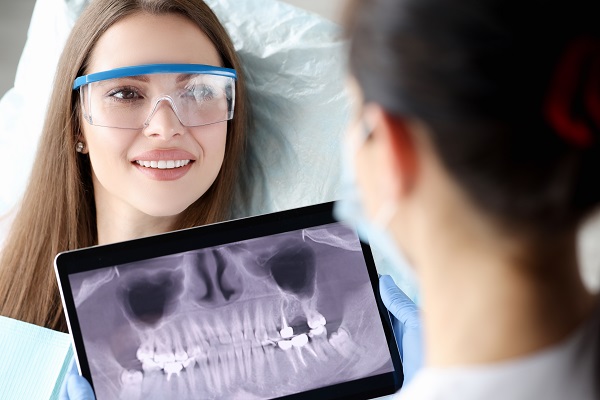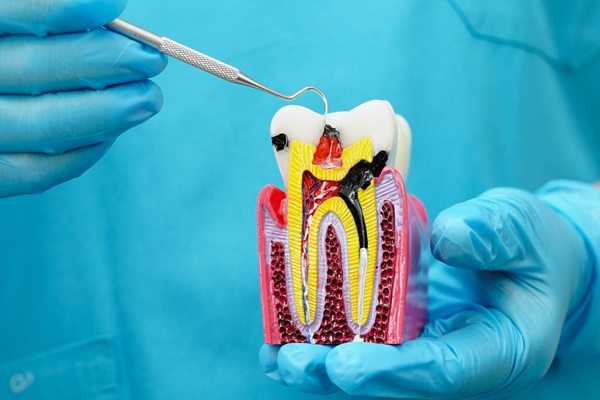Root Canal Treatment to Remove a Tooth Infection

If you have an infection in one of your teeth and needs to be removed, you may need root canal treatment. This procedure will remove the infection from the tooth's root, where most infections start. The tooth will then be re-implanted with a crown, filling, or bridge to cover the space left by the dead tooth removed and stabilize the remaining teeth in the mouth. Getting this procedure done correctly and with little pain can ensure that your remaining teeth stay healthy and strong so you can enjoy all your favorite foods and not have to worry about losing any of your teeth due to decay or an injury.
What is a root canal?
This is a procedure when a dentist removes all your tooth's pulp, which is located inside your tooth.
This area holds most of your tooth's nerves and blood vessels. When bacteria spreads through your gums and finds its way into these inner spaces, it can cause an infection that can destroy your tooth from within. This aims to remove as much infected tissue as possible before sealing the hole left by extracted material with dental filling material like gold or composite resin. The result? Healthy teeth!
What are some reasons I need a root canal?
Your dentist may recommend this treatment for a tooth with an infection to maintain good oral health. When bacteria reach and infect a tooth's inner core, they can destroy tissue and spread throughout nearby teeth and bone. Left untreated, it can cause pain or disease in other parts of your body—so you shouldn't wait to seek help from your dentist if you suspect you have a cavity or gum disease.
What is involved in getting treatment?
For it to work, your dentist will first remove all your tooth's nerves and then fill in around it with cement (called a filling). Once that is done, they will close everything back up and seal it off. The roots get cut away so that none are left inside your mouth. As a result, there shouldn't be any nerve endings inside the root. If you don't want an infected tooth, you can always have one removed by getting this procedure or just having it pulled out.
How do I care for my mouth after my procedure?
Immediately after your procedure, you should eat soft foods that do not require chewing. Examples of soft foods are:
- Cottage cheese
- Mashed potatoes
- Scrambled eggs
- Ice cream
Also, avoid drinking hot liquids or consuming alcohol for at least twenty-four hours after your treatment. If you're experiencing pain in your mouth following a procedure, try taking an over-the-counter pain reliever such as ibuprofen or acetaminophen.
Ask your dentist for more information
Be sure to ask your dentist any questions you have about your treatment. They can be very helpful in answering any questions you may have. If you have pain, bleeding, or infection after your procedure, contact your dentist as soon as possible. Your dentist will be able to tell you if your problem is caused by something other than an issue with your tooth. In some cases, patients are given antibiotics before or after their procedure.
Request an appointment here: https://santarosaendodontics.com or call Santa Rosa Endodontics at (707) 409-1177 for an appointment in our Ukiah office.
Check out what others are saying about our services on Yelp: Root Canal in Ukiah, CA.
Recent Posts
A general dentist can perform basic tasks in tooth care, such as X-rays, oral examinations, filling cavities, and extractions. However, patients may be referred to an endodontist for more complex work, such as certain root canals. When is it likely for a dentist to refer a patient to this dental specialist?While a filling can fix…
Root canal treatment is often the first line of defense for treating teeth with compromised pulp chambers. The pulp chamber is the innermost layer of a tooth, and it stores nerves, blood vessels, and connective tissues. The chamber is sealed off from the rest of the tooth to protect it against bacteria and other irritants…
A root canal can preserve and strengthen a severely damaged or infected tooth. When seeing a root canal dentist, asking informed questions can provide clarity, ease concerns, and improve treatment outcomes. Understanding the procedure helps make the experience more comfortable and ensures you are well-prepared for each step.While each patient's situation is unique, the following…
A person might need to see an endodontist for a wide variety of problems, mainly relating to how they can save patients’ teeth. All endodontists are dentists because they have completed dental school, but they do two more years of specialized study in the techniques used to preserve a person’s dentition. So, if you are…


